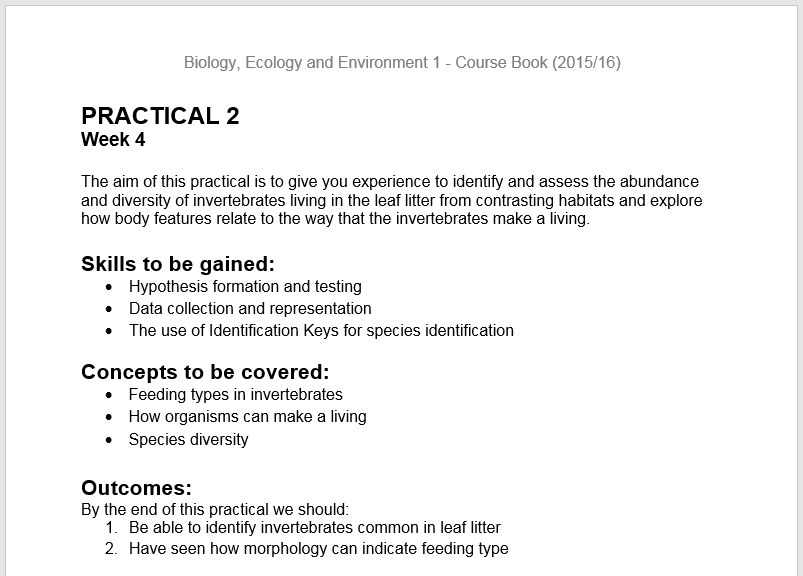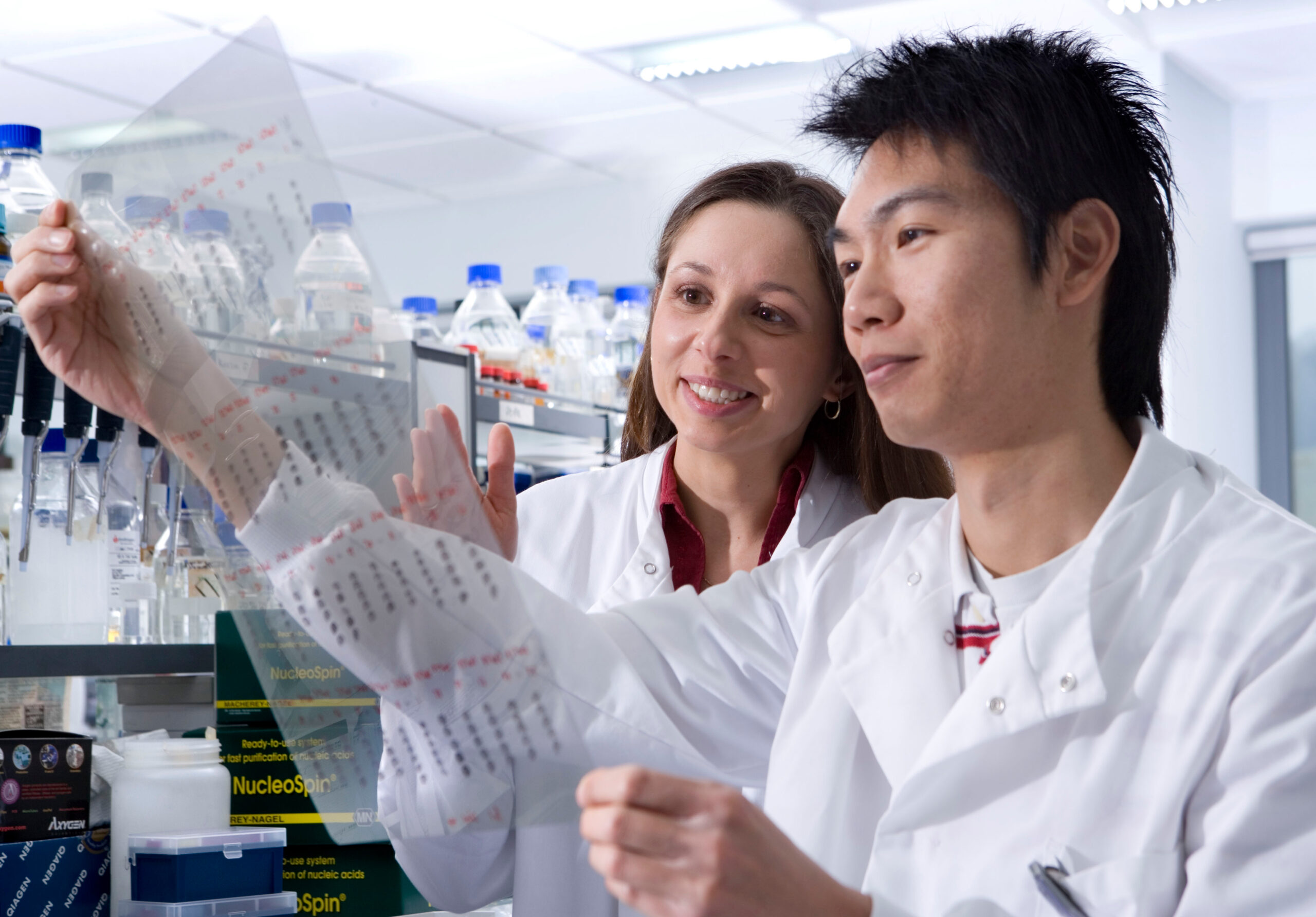 One of the greatest teaching-related challenges for staff, particularly those engaged in large scale undergraduate teaching, is to provide valuable and rewarding learning opportunities for students. This is acutely true among practical teaching opportunities in the Sciences, due to the delicate balance that must be sought between the desire for the practical to work reliably (any error that can be made, will be made in a large enough class) and the obligation to ensure that the practical will foster the skills and sense of exploration that is required for a burgeoning scientist. Unfortunately, and too frequently, safety is sought over deeper learning opportunities. Here is a brief description of one attempt made to throw caution to the wind (a bit).
One of the greatest teaching-related challenges for staff, particularly those engaged in large scale undergraduate teaching, is to provide valuable and rewarding learning opportunities for students. This is acutely true among practical teaching opportunities in the Sciences, due to the delicate balance that must be sought between the desire for the practical to work reliably (any error that can be made, will be made in a large enough class) and the obligation to ensure that the practical will foster the skills and sense of exploration that is required for a burgeoning scientist. Unfortunately, and too frequently, safety is sought over deeper learning opportunities. Here is a brief description of one attempt made to throw caution to the wind (a bit).
The practical in question was designed for a first-year Ecology course, with practical classes of approximately 60 students. While many practical design efforts begin with identifying content and/or skills (mostly mechanistic), this practical began life by identifying “big picture” scientific skills: specifically hypothesis development and testing; and data collection and representation. Therefore, the subject matter, although relevant, would be playing a supporting role rather than being centre stage. The first step was then flagging this up to the students at the outset of the practical (see below for the first page of the practical guide).

While this course also offered semester-long experimental projects, with extensive student autonomy, the practical was meant to function as a single independent unit. This (self-imposed) time limit meant that the journey of scientific discovery cannot be fully replicated by students – the materials have to be there before the students arrive. However, this was the only willing concession to ‘reliability’ – the remainder of the students’ engagement with the scientific endeavour was retained.
The biological material that is made available for students is constantly varied and sourced to allow multiple small-scale hypotheses to be identified and tested (for example having native vs. non-native and deciduous vs. coniferous sourced leaf litter). Therefore, even staff do not know what “the answers” are going to be at the end of the practical – making it a genuine experience even under the usually artificial setting of a practical.
The first activity for the students is to develop the hypothesis they aim to test. Then, while general guidance is provided for the methodology, the exact procedures are determined by the students. They are given guidance to think about being rigorous and repeatable before progressing to data collection. The final and perhaps most critical step is to use the data that is collected. This is done in an assessment which asks questions directly from the compiled class data.
There are several difficulties in using this strategy, both for students and staff. The primary student difficulty is that some students are not yet ready for the independence, largely stemming from unfamiliarity with the ways of thinking or due to lack of confidence (not lack of ability). The primary difficulty for staff is that it requires a great degree of flexibility. Having run for a few years now, the practical results frequently do not meet the predicted expectations. Therefore, the assessment and staff marking it need to respond thoughtfully to what is actually found by the class to provide role models of good practice.
Given the desire to emphasise these core scientific enquiry skills we are pursuing a re-evaluation of all of our early year course practicals within the School of Biological Sciences with a hope to fully integrate this type of practical experience across our courses.



